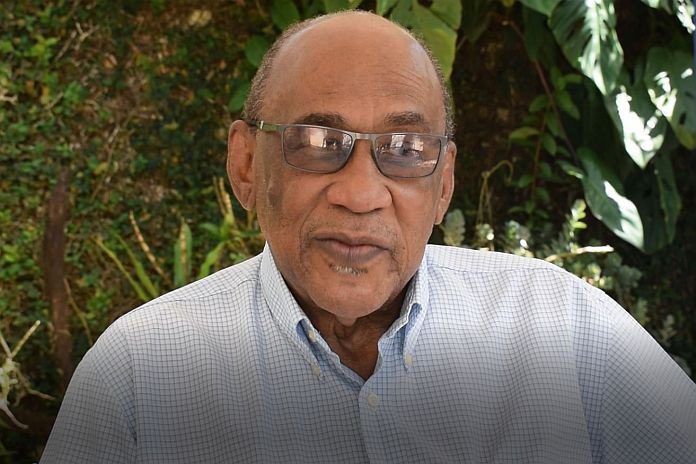Leading agriculturalist, Dr. Arlington Chesney said the Guyana government should accelerate its agriculture program, and that he hopes a substantial portion of the revenues gained from the production and sale of crude will be invested in this sector.
It is one of the sectors identified as a major focus for the government, in its effort to diversify the economy and become less reliant on oil revenues.
Dr. Chesney, a national awardee for his contribution to the agriculture sector in Guyana, made his comments during an interview on Monday on 94.1 FM’s Jumpstart morning show.
Importantly, Dr. Chesney said stakeholders must seriously consider how to connect producers to marketers who have grown accustomed to importing food, as Guyana seeks to reduce imports and become self-sufficient.
“When you import, you import without as much risk. So, that whole question of linking the producer to the marketer becomes very critical as to how you do it,” he said. “For example… if you’re going to supply food to the rigs [offshore], how do you ensure that they have quality food because those rigs are, I call them floating hotels. There is a captive market, right, so you have to make sure that the food is of good quality and is safe.”
He said the question of roads and utilities is also an initiative for the government to consider because if farmers have to take on the cost of preparing this infrastructure in addition to farming, the reduction in the profitability of the business could discourage them from investing at all.
“Government of Guyana has to accelerate its program in infrastructure, and that infrastructure is not only physical infrastructure but technical and administrative infrastructure,” Dr. Chesney said.
It is a program which, he posited, requires the participation of the entire government, and by extension, all of society.
“The prices of food [are] going up and also, we’re seeing, since the pandemic, we had a supply chain problem… And now with Ukraine, we’re seeing a shortage of some basic food or materials… So, this time, have a serious emphasis on agriculture and maintain that emphasis.”
Asked what the government’s specific product focuses in this sector should be, Dr. Chesney said one should simply examine what constitutes the hefty regional food import bill. In this regard, he offered suggestions of poultry, meat, cereals and sugar.
The Caribbean Community’s (CARICOM) food import bill is approximately US$4 billion, Dr. Chesney said. He reminded that the Heads of Government of CARICOM, in conjunction with the CARICOM private sector organization, agreed to set a food import bill reduction target of 25% at 2025. The program, the agriculturalist said, has been stymied by the COVID-19 pandemic.
Dr. Chesney commended President Dr. Mohamed Irfaan Ali, who is the lead on agriculture in the CARICOM quasi-Cabinet, for taking on such a prominent role.
Addressing a gathering in Berbice on Sunday, Dr. Ali said the revenues from oil must be used to build agriculture in Guyana, by investing in technology, infrastructure and partnerships with farmers. The President said Guyana will be hosting a regional agricultural forum soon, the first event of its kind, to bring together all the major stakeholders in the region to formulate an actionable plan.
In this region, Dr. Ali also said that Guyana is in talks with Barbados, and other CARICOM member states, on measures which can be taken to remove trade barriers.



